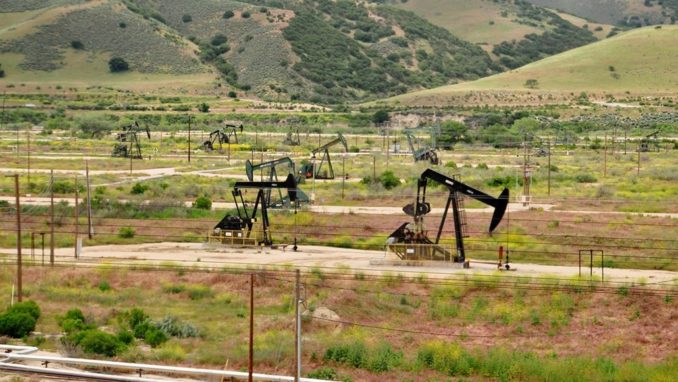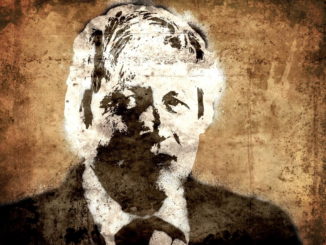
Veteran observers of economic folly have the advantage of experience. They are already familiar with the failed policies being enacted, yet again, by unprincipled politicians whose sole motivation is re-election. In the meanwhile these pillars of ineptitude, incapable of linking cause and effect, remain blind to the consequences of their actions. Yet it still happens. [How else, for heaven’s sake, can you explain a decision to spend billions of pounds of people’s money on things that cannot possibly give a return?]
Though you and I may see the absurdity of such behaviour, the younger, untutored, generation have little guidance and, sadly, little hope. For example, they don’t even know the correct meaning of the word “inflation” – thinking, mechanically, that it’s the same thing as rising prices. If their political mentors fall into the same trap, what hope is there for the youngsters? Most economics students know that changes in the relationship between the demand and supply of a commodity will lead to a change in its price. But what about the third factor in this equation, the medium in which transactions are effected?
Flooding the economy with newly printed money – the effect
If the availability of money in the economy rises while the relationship between demand and supply of commodities remains relatively stable, it is obvious to you and me that nominal prices will tend to rise. But it’s not obvious to the governors of the world’s major central banks, whose raison d’etre is to exercise their right to determine interest rates in order to control inflation – to keep it low, at say 2 percent. But listen to Andrew Bailey, Governor of the Bank of England, saying only last week that “the proximate cause of many of these inflation issues is on the supply side, and monetary policy isn’t going to solve those directly.”
In this dismissive utterance he failed to add that those supply-side issues (blocked ports, lorries without drivers, unaffordable fuel and energy prices, unproductive regulatory spending, chaotic supply chain disruptions) are themselves attributable to governmental resource mismanagement. Contrary to his expressed view, a transformation in monetary policy is precisely what’s needed!
Not only does the B of E Governor fail to recognise the role of his own policy of unrestrained money-printing as a direct contributor to the surge of price increases we are now grappling with – but that by enriching the early receivers of de facto counterfeit it is a primary contributor to malignant societal division. Players in financial centres, including commercial and investment banks, brokers, bond issuance houses, massive central government payrolls and public sector contractors -all are paid long before the unavoidable rise in prices impoverishes the later receivers, notably small retail businesses, savers, pensioners and the host of lower paid workers having to feed their families.
As night follows day Bailey and his ilk will reap the coming whirlwind. He grudgingly conceded last weekend that if wages soar the Bank will be forced to raise interest rates. If? At which end of the curve has he been living? A palpable rise in the cost of living is the direct trigger for soaring wage demands. Yet he can’t see that his own policies have set the whole show in motion, nor the effect that higher interest charges will have on every household budget – and on the cost to government of servicing the national debt!
The impossibility of economic calculation in a command economy
In case it needs rubbing in, rampant money-printing destroys the possibility of economic calculation. Think! Just for a change, the government is talking about reform of the health service. Well, that’s a great idea, and certainly overdue! But when money is freely conjured out of thin air how will costs and benefits be evaluated? Any attempt at economic calculation is meaningless.
To understand this fully, compare reforming the NHS with setting up a privately owned factory assembly line requiring management foresight: overhead costs must be estimated; supplies must be competitively sourced and costed; the impact of time overruns calculated; the cost of capital factored in; the market to be researched – and the projected profit to be contrasted with alternative uses of those resources.
This last step requires economic calculation, and that’s impossible when each of those alternatives will also enjoy unrestricted access to limitless quantities of printed money. And this is exactly why no socialist state in the history of the world has ever succeeded without morphing into a tyranny over its own people – and there’s no shortage of examples. That’s the message for junior members of our readership to ponder.
Brunel provides a contrast
Yet the “know-alls” running the show believe that state-funded infrastructure need not bother with economic calculation. After all, “money is no object” – which is exactly why Crossrail and HS2 time-scale targets always lapse from months to years, and cost overruns make a mockery of the very notion of spending controls by central government.
Speaking of HS2, it is truly unbelievable that it should take more than 20 years to build one railway line, still nowhere near completion, incurring an eye-watering cost to taxpayers. Contrast this with the work of Victorian engineers who, in the 1840s and 1850s, constructed most of Britain’s rail network from scratch using private money. They engaged state-of-the-art technology and faced as many objections from landowners who even refused them access.
The Great Western Railway, designed and constructed in only six years by Isambard Kingdom Brunel, required an advanced-technology bridge over the Thames at Maidenhead (still used today) and tunnels, cuttings and embankments by the score.
Brunel’s reputation as a man whose calculations stacked up ensured that he had no lack of investors. They made a profit, while providing an immense public service. Contrast that with HS2 which, far from making a profit, has been funded from the start out of public coffers – despite the probability that few of today’s taxpayers will ever use it!
Brunel’s investors enjoyed the added advantage of knowing that their money would be spent on construction and materials – rather than on surveys of protected species, environmental impact assessments and archaeological digs. No wonder UK infrastructure costs are prohibitive, huge fees having to be paid to consultants before a yard of track is laid.
Fossil fuels have a worthy provenance
At Glasgow’s COP-26 conference Boris Johnson apologised for Britain’s part in the Industrial Revolution. Yet without those demonised fossil fuels countless modern industries would never have even started. By 1850 the work of thousands of handloom weavers working in the countryside was taken over by automatic looms. Wealth created in textile factories, previously tied to land ownership, liberated thousands of rural workers from a condition of agrarian serfdom.
When Greta Thunberg’s miserable logic prevails over the exercise of reason one can only ask where it leads. But considering where it all started, our revered political masters might as well apologise for the emergence of life from the primaeval swamp. After the passage of a few billion years it spawned the human race – and that’s responsible for all the death, slavery, racism and destruction so diligently targeted by the new generation of protesters.
But just as we discovered technology to effect life enhancement, we are now engaging the same human genius to ameliorate the detritus of that progress now considered harmful.
No need to cancel any of it!
© Emile Woolf November 2021 (website)



